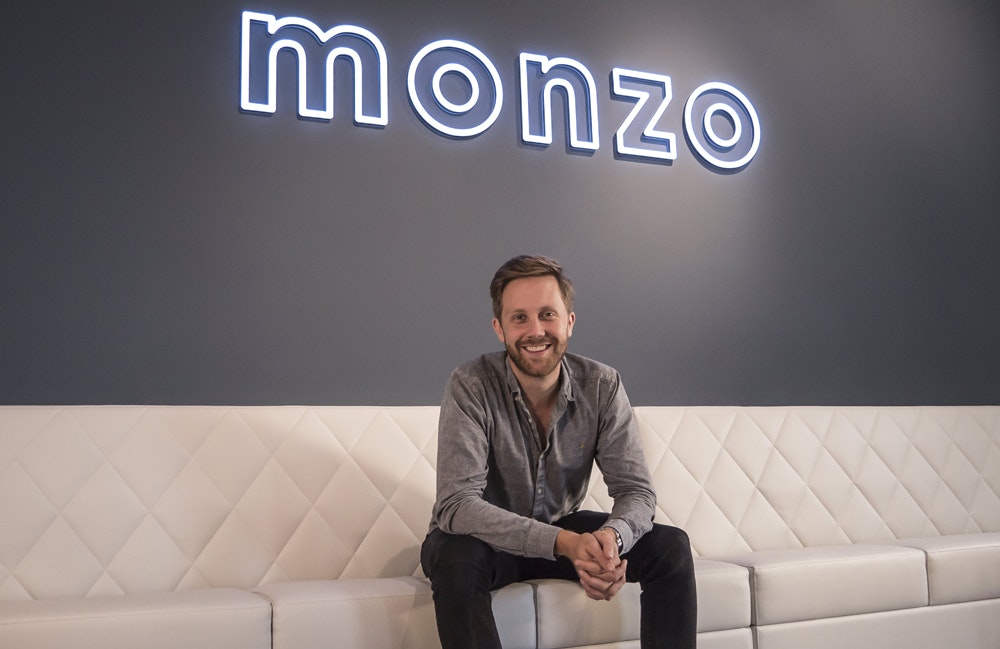News that Monzo cofounder Tom Blomfield is stepping down as the fintech's chief executive to become President has prompted a flurry of speculation about what is really going on inside the bank after a rocky few months.
But it has also raised a bigger question about the management of rapidly-scaling tech companies: when should startup founders stop being CEOs?
Back in the 1990s, conventional startup wisdom said that ambitious young founders should be backed to start breakthrough companies — but then hand the keys over to someone more experienced once it comes time to scale. Examples of this model working well include Cisco, Yahoo and eBay.
Since the 2000s, however, this thinking has shifted. In the US, investors more often look to cult figures such as Jeff Bezos at Amazon and Elon Musk at Tesla to show that founder chief executives can perform better in a world where speed and bold innovation are more important than ever.
Looking at Europe today, the founders of most startups now worth more than €1bn remain as chief executive: for example, Daniel Ek at Spotify, Sebastian Siemiatkowski at Klarna, Will Shu at Deliveroo, and Daniel Dines at UiPath.
"Twenty years ago, venture capitalists were in a hurry to bring in professional CEOs. Today, many of the same VC firms are busy touting their support for long-term founder-CEOs," writes LinkedIn founder Reid Hoffman in this widely-cited LinkedIn post pointing to a global shift.
Monzo the outlier
All this makes Blomfield's decision to step back from the nitty-gritty operational side of running the bank and be replaced as chief executive by an experienced banker, TS Anil, all the more rare.
While there are some notable big European startups where the founders are no longer chief executives (Benevolent AI, Seedrs, for example), there are few among the biggest fintechs: N26, Revolut, Starling, OakNorth, Greensill and Checkout.com all have founders who are also chief executives. Even's Transferwise's Taavet Hinrikus, who stepped back as CEO, then simply handed the reigns over to his fellow co-founder Kristo Käärmann.
In an interview with TechCrunch explaining the move, Blomfield said that taking on the role of president instead of chief executive will allow him to spend more time “doing the stuff I really really love, which is community, talking to customers, helping develop the product proposition, long term vision…"
He said he would "try to unwind my involvement a little bit in more formal regulated banking activities”.
The backdrop to all this is that Monzo is potentially facing a crucial few months ahead. While respectably capitalised and still hugely popular among customers, the challenger bank has seen customer card spend reduce at home and abroad amid lockdown, while new account signups have also slowed during the pandemic.
Monzo is now also looking to raise £70-80m in extra funding, but at around a 40% discount from the £2bn valuation it raised at last June.
Which is better?
Venture capital investor Andreessen Horowitz has long argued that they prefer to back companies with a 'founder CEO'. In the venture capital firm's opinion, it's easier to help a visionary founder learn how to scale a company than to teach an experienced manager to be a visionary.
Founders have three qualities it's hard to recreate, Andreessen Horowitz argues:
- Comprehensive knowledge
- Moral authority
- And a total commitment to the long term
Andreessen Horowitz also cites a study of 50 tech startups which shows that founder CEOs see better exits.
"Looking across these nearly 50 companies, the study finds that founding CEOs consistently beat the professional CEOs on a broad range of metrics ranging from capital efficiency (amount of funding raised), time to exit, exit valuations, and return on investment," writes cofounder Ben Horowitz.
But the counter-argument is that, while this may sometimes work, there are not many people like Bezos. Most founders are just better at starting breakthrough companies than the fiddly business of scaling them up.
Noam Wasserman writes in the Harvard Business Review in 2008 that bringing in professional managers to scale is usually the right approach.
Tom Savage, a British entrepreneur, recently addressed the taboo in a widely-shared blog-post, where he proudly explained that he was "a founder, not a CEO."
But Wasserman and the team at Andreessen Horowitz agree that what the right move ultimately depends on the company and the type of founder.
This week, many in the fintech world predicted that Blomfield as president of Monzo was a positive - both for him and the company.
Dave Cunningham, formerly chief executive of regtech Priviti, now founder of 36tdata, said on Twitter: “In a savvy and mature move the founder has moved to a more senior position to allow him to focus on creating value. This leaves the administrative and management burden of running the business to one of his recent hires.”
Brett King, an influential voice in global fintech and founder and executive chairman of Moven, a New York-based mobile banking startup, said: "I feel for Tom Blomfield having been through this. As Moven grew it became clear that my best role was strategically in respect to product and growth, not operationally as the day-to-day CEO.”
Others privately commented to Sifted that the change would force the company to solidify its revenue strategy, and to cement its leadership.
So the end of the founder CEO may be a good move for Monzo - even if it makes the bank an outlier among its peers.



